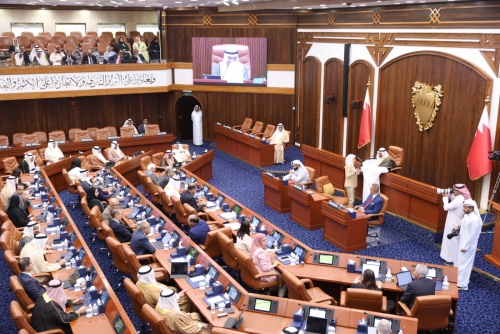Married expatriate women in Bahrain may soon have the opportunity to run businesses without needing their husbands’ permission, as a proposal to repeal an outdated law is set to be reviewed in the Shura Council. The initiative aims to abolish Article 14 of Bahrain’s Commercial Law, which currently requires foreign married women to obtain their husbands’ consent to engage in trade. This change would eliminate unnecessary restrictions on women who want to start or manage a business, aligning with Bahrain’s commitment to international conventions on gender equality. By removing barriers and creating a more equitable business environment, the proposal seeks to enhance legal frameworks for women’s economic empowerment without discriminatory conditions that hinder economic equality between genders.
Abolishing Article 14 would bring national legislation in line with Bahrain’s policy of non-discrimination in commercial activities and promote gender equality in the business sector. This move is consistent with Decree-Law No. 27 of 2015 regarding the Commercial Register, which ensures that both men and women have equal opportunities to engage in commerce under the law. The proposal also reflects changes in regional legislation, such as the United Arab Emirates’ Federal Decree-Law No. 50 of 2022, which amended previous laws concerning the ability of married foreign women to engage in trade. By aligning with international standards and regional best practices, Bahrain is taking a significant step towards empowering women in the business world.
The proposal to repeal Article 14 is a significant development in Bahrain’s efforts to provide a safe and attractive investment environment for all entrepreneurs, regardless of gender. By allowing married expatriate women to pursue commercial ventures without unnecessary obstacles, Bahrain is striving to be a more inclusive and competitive market. The proposal will be debated in the Shura Council and could be approved in upcoming sessions, paving the way for a more gender-equal business environment in the Kingdom. This initiative aligns with Bahrain’s vision of building a vibrant and diverse economy that empowers women to contribute fully to the nation’s development.
The proposed change in Bahrain’s Commercial Law represents a crucial step towards promoting economic empowerment and gender equality in the country. By eliminating the requirement for married expatriate women to obtain their husbands’ consent to engage in trade, Bahrain is sending a clear message that women have the right to pursue their entrepreneurial aspirations independently. This move also reflects Bahrain’s commitment to international conventions on gender equality, such as the Convention on the Elimination of All Forms of Discrimination Against Women (CEDAW), which the Kingdom ratified in 2002. By aligning national legislation with these conventions, Bahrain is signaling its dedication to creating a fair and inclusive business environment for all individuals.
Bahrain’s decision to consider repealing Article 14 of the Commercial Law is a positive step towards creating a more welcoming and supportive environment for female entrepreneurs in the country. By removing unnecessary barriers and restrictions that hinder women’s ability to engage in commercial activities, Bahrain is opening up new opportunities for economic growth and prosperity. The proposal to repeal Article 14 is a key component of Bahrain’s broader efforts to enhance legal frameworks for women’s economic empowerment and promote gender equality in all sectors of society. If approved by the Shura Council, this change will contribute to Bahrain’s goal of becoming a more inclusive and competitive market that values the contributions of all entrepreneurs, regardless of gender or marital status.


























